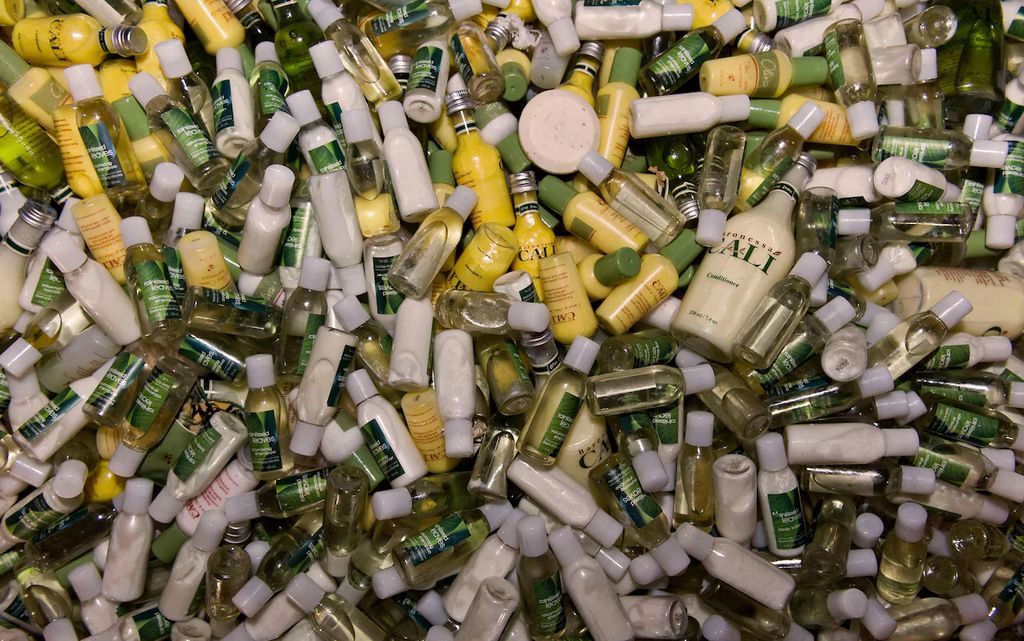We bring our own bags to the grocery store, we’ve ditched straws on behalf of the innocent turtle we saw on Facebook, and we would never be caught dead with a plastic water bottle. It would seem that society is moving in the right direction, but we can’t help but wonder…do we treat going green on vacation in the same way we do with a “cheat day” when we’re on a diet?
We actively control our eco-friendly impact, or carbon footprint, at work and at home, but does all of that go out the window as soon as we go out of town? We’ll skip the guilt trip, as holiday days are meant to be enjoyed and to clear your mind, but there are ways you can do both! Both hosts and guests with Glamping Hub can rejoice without greenwashing on America Recycles Day on November 15 with these helpful tips.
For guests
A few small changes can be made before you ever leave your home. While walking out the door, be sure to turn down the thermostat and temperature on your water heater; unplug appliances that are not in use (microwave, iron, TV, etc.); and close your curtains and blinds to reduce added strain on your air conditioning.
It’s not your fault that the small bottles of shampoo, conditioner, and body wash are seemingly irresistible—we’re hardwired to find small things adorable. What’s not cute is the plastic waste these little guys create. Every time you half use them or take them home, they will need to be replaced, thus creating more waste. Invest in a zero-waste toiletry kit to bring with you while traveling!


Unplug from your devices literally and physically. Remove chargers for phones cameras, hair straighteners, electric shavers, and other electronic devices from the wall plugs when not in use. These “energy vampires” are still sucking energy when left plugged in.
Do what you can to make things easier on your host by separating paper, glass bottles and cans, and plastic.
Ask your host if they compost and separate your food scraps accordingly if they do.
Limit the use of electricity and water at your accommodation. While you may not be footing the bill for the endless hours of air conditioning, energy is still being consumed.
For hosts
In recent years, the travel industry has been shaped by the rise of the eco-conscious consumer. Here, we will explore a few quick fixes to reduce waste and recycle.
Start a compost pile. Composting enriches the soil and helps retain moisture, thus reducing plant disease and pests. Composting also reduces the need for chemical fertilizers, and encourages the production of beneficial bacteria and fungi that break down organic matter to create humus, a nutrient filled material. It’s easier than you think and will support a beautiful environment around your accommodation.
If you provide the proper place, guests will recycle. Make it easy for guests to do so by labeling the trash receptacles appropriately for plastic, glass, paper, and organic waste to be composted.
Low-flow faucets and showerheads can reduce water consumption by 30% to 50% and can reduce your water bill by up to a quarter. By installing an Aerator, which is a small, metal filter that attaches to your faucet or showerhead and adds air to the stream, water pressure will not be compromised. Low-flow faucets, showerheads, and aerators can be found at Home Depot, Bed Bath and Beyond, and on Amazon for roughly $15.
If you are located in a place with heavy rainfall, you should consider recycling this natural resource. Collect rainwater in barrels and reuse it to water plants or wash the floors. There are also long-term rainwater collection installments available, which can be used as an irrigation system or filtered back into the house for use in the showers, faucets, washing machine,and more.
Light fixtures are a simple fix that can help you save money and reduce waste long term. CFL and LED light bulbs use far less electricity and can last up to 10 times longer than traditional light bulbs. While these bulbs may initially be an investment, they will cut costs in the long term.
By making changes to go green, whether you are a guest or a host on Glamping Hub, you’ll become part of a much larger, global effort—allowing guests and hosts to both help preserve the beautiful nature that surrounds our accommodations.
The term greenwashing was coined by New York environmentalist Jay Westervelt in a 1986 essay regarding the hotel industry’s practice of placing placards in each room to promote the reuse of towels, ostensibly to “save the environment.” Westervelt noted that, in most cases, little or no effort toward reducing energy waste was being made by these institutions, as evidenced by the lack of cost reduction this practice affected.
